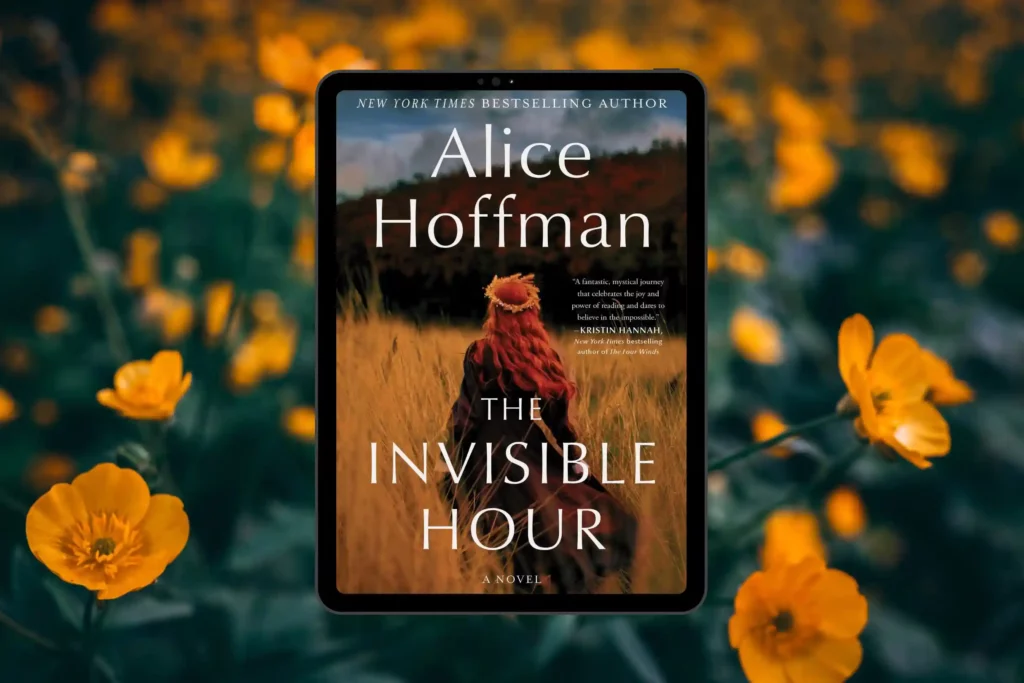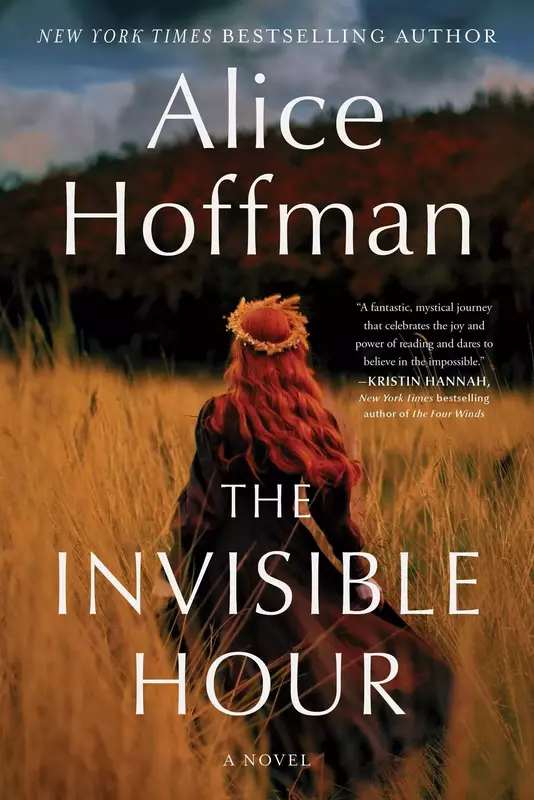This post may contain affiliate links. Read more here.

The Invisible Hour by Alice Hoffman is a captivating and enchanting novel that seamlessly blends elements of love, growth, time travel, and the transformative magic of literature.
The story revolves around Mia Jacob, a young woman whose life takes an unexpected turn when she discovers an uncanny connection between her own experiences and Nathaniel Hawthorne’s classic novel, “The Scarlet Letter.“
The Invisible Hour by Alice Hoffman
Hoffman’s prose is nothing short of magical, painting vivid landscapes and intricate emotions that draw readers into Mia’s world. The novel beautifully explores the idea that literature transcends time and offers solace and insight, paralleling Mia’s personal journey of self-discovery with her immersion in Hawthorne’s literary world.
Here, the lines between reality and fantasy blur as Mia and Hawthorne develop a deep connection that challenges the boundaries of time and history. While the transition to this fantasy element may require readers to suspend their disbelief, it adds an imaginative layer to the narrative that explores the intricacies of fate and the possibility of altering history.
Mia’s evolution from a young girl captivated by the written word to a woman entangled with a brilliant writer from another era is a captivating exploration of dreams, love, and the power of storytelling. The characters are skillfully developed, each with their own desires, struggles, and growth arcs that contribute to the richness of the narrative.
The feminist themes that run through the novel are particularly noteworthy, as they highlight women’s struggles, the complexities of motherhood, and the historical challenges women have faced in shaping their own destinies. Hoffman’s ability to interweave these themes with elements of magic and fantasy creates a truly immersive reading experience.
Hoffman’s portrayal of Hawthorne is dreamily appealing, and the voice she gives to his sister Elizabeth offers a glimpse into the struggles faced by brilliant women of the past. While the novel’s intention to convey messages about women’s rights and the impact of literature is evident, some readers might find these themes occasionally repetitive or didactic.
The incorporation of a fantasy twist midway through the story may require readers to embrace a suspension of disbelief, but it ultimately adds to the novel’s uniqueness and whimsy. The exploration of the impact of literature on personal lives, the concept of time as fluid, and the strength of love as a liberating force are thought-provoking and contribute to the book’s charm.
Overall, while The Invisible Hour may not be considered one of Hoffman’s standout works, its exploration of the interplay between reality and fantasy, the timeless relevance of women’s struggles, and the enchanting allure of literature make it a thought-provoking read that may even inspire readers to revisit Nathaniel Hawthorne’s own writings.
This novel is a celebration of the enduring magic of books and their ability to transcend time, bridging the gap between the real and the fantastical.
P.S. If you’re looking for book club discussion questions for The Invisible Hour, click here!
